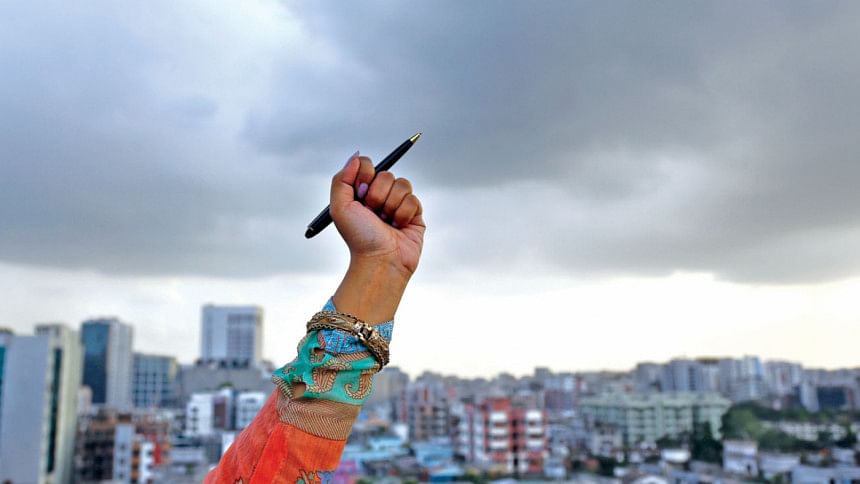The Fourth Estate

Photo: Prabir Das
The concept of democracy is ever-evolving since the Greco-Roman experiments with the idea of allowing a group of people to decide how to govern themselves. Of course, from its European beginnings, this right to govern oneself was not available to everyone- it started with men of Greek or Roman descent, leaving out women, and people from other ethnicities. The experiment gained traction in 17th century England when a rising group that called themselves the bourgeoisie began to curtail the power of the monarch. Since then and until now, democracy has yet to find a practical manifestation of all of its ideals. But over time, it has been made abundantly clear that a democracy cannot function without an informed citizenry- and an informed citizenry is only possible through a rigid and unbiased media.
The Daily Star has now served as a prominent member of the fourth estate of media for 25 years, starting soon after our own experimentations with democracy began in 1991. The ideals behind this institution of journalism were a lot similar to those of democracy itself- that it would transmit the news that is required by the populace to make informed decisions about their own governance. Beyond that, there was also a concerted commitment towards bringing into public discourses instances of wrongdoing, corruption and social oppression. At the moment of its inception, there was a lack of a strong media presence in the English language in the country. Slowly, The Daily Star became a leading voice in mainstream print journalism.
At the end of the day, a newspaper is evaluated based on the positive impact it has had in shaping the collective consciousness of the populace. In that vein, The Daily Star has taken a very strong stand on several important issues that the country has dealt with- from bringing into public discourse the issue of violence against women, the issue of marginalising of religious minorities and the indigenous populations of the country and how energy and chemical proliferation has degraded the environment. Politically, The Daily Star has been only one of a handful that have extensively reported on the Padma Bridge scandal and the recent incongruities with elections in the country. If we look towards the nationalist movement in Shahbag and the private university students' movement against VAT, the newspaper was present to catalogue the facts. In recent times still, The Daily Star has done a commendable job in highlighting the issue of communal tension and the dangerous possibility of religious extremism.
A quarter of a century is a long time. And yet, in the context of nation building, it is but a fraction of a second. As we watch our country go through tumultuous changes, with a developing industrial base, a burgeoning labour force and the imminent risk of climate change, our political apparatus is shifting, too. It is here that the fourth estate of the media has perhaps its biggest challenge. Aiding and encouraging the implementation of democracy in a third-world country. And so, at a time when non-mainstream information sources (the so-called 'Fifth Estate') are readily available thanks to the internet, it is doubly important that an institution such as The Daily Star continues to adhere to its founding ideals of creating an informed populace. After 25 years, the job looks set to be as challenging as it has always been. But then, many would argue that that is the hallmark of good journalism.

 For all latest news, follow The Daily Star's Google News channel.
For all latest news, follow The Daily Star's Google News channel. 



Comments